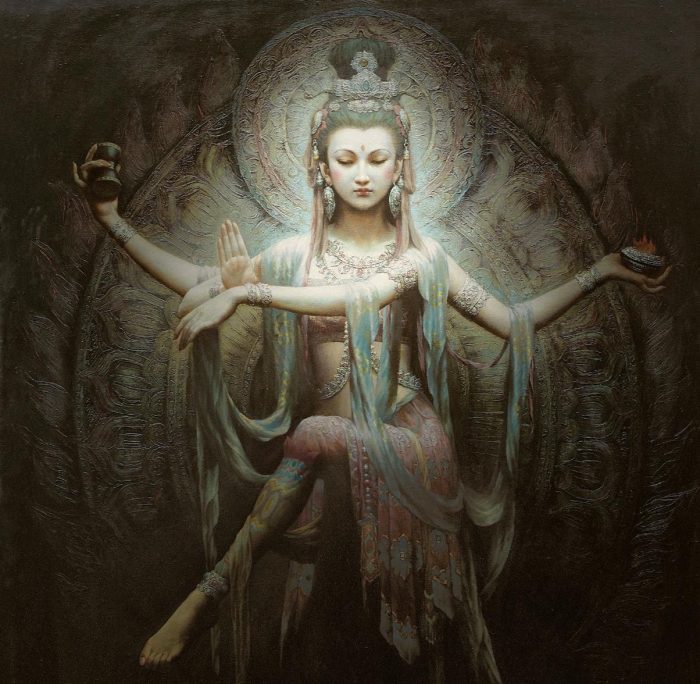In the counseling, social work, sacred healing and other helping professions there is a phenomenon commonly espoused as “compassion fatigue.” This phenomenon is studied, researched, and discussed among professionals in the field. While some believe that compassion fatigue is a result of being exposed to a traumatized person, others believe that it is just a byproduct of working in a helping profession. It is argued whether or not, empathy, a critical component to being phenomenal in these professions is really a source of impairment for many helpers. And whether or not the empathic, nurturing hearts of the field are equipped to handle the harsh, critical truths of reality.
As a novice in the field, I have experienced my own forms of compassion fatigue, imposter syndrome and self-doubt to how I might be readily equipped to help others. However, I believe that the phenomenon of compassion fatigue is really just a profound, clarifying, and albeit at times overwhelming, understanding of suffering if not nurtured with the awakened heart of the bodhisattva.
Through the mythology of the awakening of the ancient Chinese Goddess Kuan Yin, helpers, healers, activists and teachers may find refuge in her loving-kindness, practice and archetypal narrative.
The Tale of the Awakened Heart of Kuan Yin
In Buddhism, the Pali word Dukkha is most commonly translated to English as “suffering.” It is in the four noble truths of Buddhism, a pillar to understanding the nature of the philosophy, that the acknowledgement of suffering must be considered a categorical truth to obtaining enlightenment.
Kuan Yin is the Buddhist goddess and philosophic, visual representation for unconditional love and compassion that goes beyond the constructs of the conditioned mind. Her origin and story in Buddhist texts are described by the “The Legend of Princess Miao Shan.” The legend paints her as an embodiment of loving-kindness, a martyr and the daughter of a usurper of the throne in ancient China.
Kuan Yin is known for her deep connected relationship to nature, trees, taking refuge in gardens and sitting beneath the bo tree during her path to enlightenment. She’s painted as sitting in silence with nature and all that encompasses it; making friends with garden snakes and feeling compassion for all of the inter-connected variety of life.
During her ascension, in the legend, Kuan Yin, was awoken one night by celestial beings beckoning her to come close, embracing her; creating a profound spiritual awakening in her that the infinite love she had for the universe was an enormity given to her to help with the suffering in the world.
Her story evokes a narrative of a woman who can sit with the labored breath of the dying and through that still, compassionate awareness, may have learned about the intricate physical dimensions of the breaths relationship between time and space. It points to her practice of meditation, observing, how the world changes, noting how every thought and feeling of inadequacy was a temptation that alluded her away from her goal of helping. Embracing the dying hearts of others in which she called, “that which is called to the cries of the world,” singing to the sick and dying. Embodying Avalokiteshvara, which is a bodhisattva and translates to “Lord who looks down with compassion.” Blanketing the cries of the dying, tortured and pained with the cloak of compassion that only love could seem to offer them.
But even then, her tales of journeying towards ethereal enlightenment are not all comprised of grace and mercy. She was confronted by the demons of hell, dragons, judgment, defied marrying against her will and experienced boundless suffering herself to which she overcame and became the embodiment of the bodhisattva — holding songs that represent the inspired evolution of eons of self-discovery and our internal suffering.
Self-reflection, Compassion and Forgiveness Teachings for Helpers in the World
Kuan Yin is an example of a called mystical being to help the world. She represents a metaphor for what, I believe, individuals who are struggling with countertransference, compassion fatigue and burn out aspire to be.
In my journey as a training psychotherapist and practitioner of the Goddess religion, Buddhism and eco-spirituality, I find the narrative of the awakened heart of Kuan Yin to be an inspiration and reminder of my personal battle against suffering, imposter syndrome and self-doubt.
In the awakened heart of Kuan Yin, resides the a priori that surrendering to the miracle of compassion can liberate us all. These feelings of awakened compassion, are here to destroy our defenses and help us discover the humility our hearts require to go on. They help illuminate the issues of ‘compassion fatigue,’ by neutralizing the misdoings, missed moments, unkindness and indifference to the pain of others, and, oddly, the attachment we hold to our own. That the impetus of sorting through our feelings of compassion fatigue resort to settling the wrongdoings of our own by overcoming the mercilessness of our thoughts by sitting with them in non-judgment and revealing the true definition of forgiveness.
She also represents a lesson that the accumulation of negative emotions, experiences and the dynamic creation of hatred in the depths of pain, maybe transformational learnings we need to remember, forget, forgive and remain presently aware of, when falling from moment to moment, through balancing the true nature of what it means to be a helper. Through the awakened heart of Kuan Yin, empathy, loving-kindness and compassion become equalizing forces of strength that liberate us, not impair us, from the suffering in the world.











Read 0 comments and reply